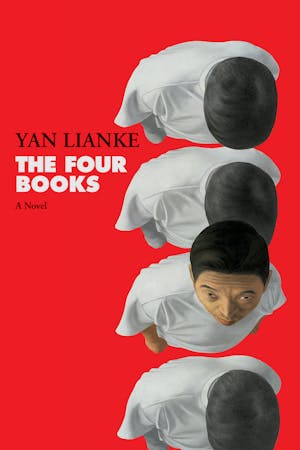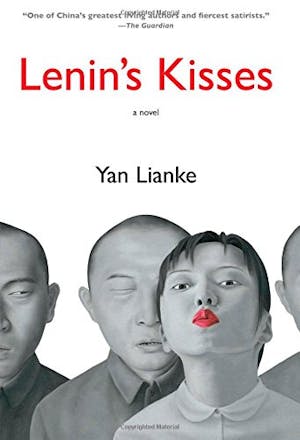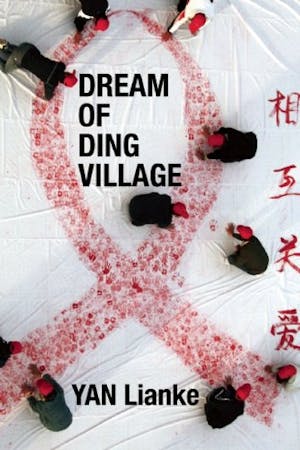In 1958, Mao Zedong declared war on the sparrows. Sparrows ate grain while it ripened in the fields, depriving the people of the fruits of their labor. For this reason they were one of four species, along with rats, mosquitoes, and flies, targeted for elimination. The campaign against them was massive and total. Sparrows were shot out of the air by the thousands. Their nests were smashed, eggs broken, and chicks killed. Children helped by hunting them with slings. In coordinated attempts to scare the sparrows from descending from the air, whole towns marched into the countryside banging gongs, beating drums, and setting off fireworks. Exhausted, eventually they dropped dead from the sky.
Soon, breathless statistics about the campaign's success were sent to Mao’s retreat in the Forbidden City. In one day, the people of Shanghai killed 194,432 sparrows. Over the course of the year, they killed more than a million. Across China, sparrows were driven nearly to extinction. Only then did the scope of Mao’s mistake become clear, for sparrows ate insects as well as grain. When locusts started devastating crops in 1960, the sparrows were pardoned for their crimes. Bedbugs took their place on the list of people’s enemies.
With its utopian ambition, mass enthusiasm, sudden reversals, and deluded goals, the Anti-Sparrow campaign captured the madness of the Great Leap Forward in miniature. The sparrow campaign doesn’t explicitly feature in The Four Books, Yan Lianke’s new novel about Mao’s attempt to transform his country from an agrarian one into a socialist one, but sparrows do—their appearance serving as a kind of harbinger for a new stage in an escalating calamity.

The book is set among a group of disgraced intellectuals interred in a re-education camp called the 99th district. Located in an arid part of Henan Province in central China, the camp doesn’t need walls to contain the inmates, since all the surrounding communities are also camps, full of watchful inmates who have been promised freedom if they catch an escapee. As The Four Books progresses, the intellectuals, who are identified only by the names of their former professions (Musician, Scholar, Author, Technician, Theologian), are made to participate in every successive campaign of the Great Leap Forward.
The sparrows first show up early on, looking in vain for a place to perch in a barren landscape. (The land has been stripped of vegetation by the Backyard Furnace Campaign—an effort to turn every villager into an ironworker that required the cutting down of countless trees to fuel the furnaces.) Later, the sparrows threaten a field of wheat planted by one of the novel’s protagonists, an inmate who has been promised freedom if he can grow “ears of wheat as large as ears of corn,” a local version of the “Sputnik Field”—a program that was supposed to revolutionize Chinese agriculture through a combination of deep furrowing and close planting. Communes reported astronomical gains in productivity. In reality, crops rotted in the fields.
Finally, the sparrows reappear at the height of the Great Famine. Now they are emaciated from having to compete with starving humans for food, waiting to grab soybeans from a dead woman’s mouth:
I gazed up at those sparrows that were circling, crazed with hunger. I sat down next to the Musician’s body. I took her head and placed it on my leg, letting her long hair flow through my fingers like water. A sense of conjugal warmth seemed to emanate from her dead body and entered through my thigh into my own body. At this point, the sky began to turn dark, and the furnace became shrouded in a dusklike glow. When a few sparrows boldly flew in, I kicked them away with my foot, then gently caressed the Musician’s face. In the dark furnace, her face appeared the color of mud, and it felt like a frozen piece of silk.
From this bleak moment, the story begins a slide toward total despair. Only at the end of the novel does Lianke pull back a bit, offering a philosophical reinterpretation of what we have just witnessed in an enigmatic postscript called “The New Myth of Sisyphus.” But the meaning of this parable—like so much else in The Four Books—remains elusive. If the ultimate meaning of The Four Books is somewhat obscure, the novel can be read as a culmination of the longer project in which Lianke is engaged: criticizing the foundations of the Chinese state and the historical narrative on which it is built, while still somehow remaining one of its most lauded writers.
According to the introduction to The Four Books, whenever Lianke travels abroad he is invariably introduced as “China’s most controversial and most censored author.” They could also add “most honored”: Lianke has won two of China’s highest literary awards, the Lu Xun Prize and Lao She Award, as well as the international Franz Kafka Prize. In spite of all this recognition, Lianke has had persistent trouble getting his novels into print. His first novel, The Sun Goes Down, was banned. As punishment for publishing it, Lianke was forced to spend six months writing self-criticism.

In another of his novels, Lenin’s Kisses, a village of handicapped outcasts, long cut off from the rest of China, tries to improve its fortunes by buying Lenin’s corpse. In the process, it goes through a miniature version all the convulsions of Chinese history. A hallucinatory take on China’s embrace of capitalism, the book got Lianke thrown off the People’s Army after 20 years working in its propaganda department. Another book, Serve the People!, in which a young soldier fulfills his duty to “serve the people” by pleasuring the wife of a high-ranking general, circulated online after being declared unpublishable by China’s state-run publishing houses. His next book, Dream of Ding Village, addressed China’s rural AIDS epidemic. Set in a village whose inhabitants contracted HIV virus after selling their plasma to big city brokers, it was published and later recalled. It’s not surprising that Lianke has admitted to engaging in self-censorship.

But in writing The Four Books, he claims to have put those concerns aside. In a Chinese-language afterword to The Four Books, Lianke writes that the novel was the product of “writing recklessly and without any concern for the prospect of getting published.” It took him 20 years to finish. When he was done, 20 publishers turned it down, aware of the dangers of putting it out, before it was picked up by a Hong Kong press in 2010. It came out in English earlier this year.
In writing The Four Books, Lianke addresses a literary blind spot. Unlike the Cultural Revolution, very few Chinese novels or memoirs deal with the Great Leap Forward, a decade-earlier attempt to re-mold Chinese society from the top down. It doesn’t figure much in history either. The Great Leap Forward is still commonly referred to as the “three years of natural disaster,” a euphemism that has allowed the government to skirt responsibility for years of famine that claimed between 30 and 45 million lives. (The exact number of victims remains disputed; the archives of the worst-affected provinces remain sealed, so historians’ estimates all rely on a certain amount of guesswork.) Lianke has written about a “state-sponsored amnesia” that blots out the memories of events that are deemed to be “too absurd, too cruel and too unpleasant for people to recount.”
The Four Books attempts to fill that void, but it also points to the relative feebleness of so much Western fiction about totalitarianism. Depictions of fascism in American bend toward a kind of grim erotica, while those of communism tend toward kitsch. Both are stocked with a nearly interchangeable larder of villains, victims, and naïfs. Many of these novels give ample scope to suffering. What they lack is a sense of the inner dynamic driving their regimes. They mistrust ideology, and are afraid to enter into it. (Because of this, most of the best depictions of Stalinist terror have come from within: Ismail Kadare’s The Pyramid or Andrey Platonov’s peerless Foundation Pit.)
In The Four Books, Lianke doesn’t shy away from these inner dynamics—rather, he invests in a character that is a creature of them. His camp supervisor is a strange preadolescent commandant known only as The Child. The Child has almost no knowledge of the world outside the re-education district. His world is made up almost entirely of propaganda comics and directives from the regional Party bosses. He’s often tyrannical. He routinely beats inmates and burns their books. He motivates them with promises of freedom and childish gifts, like paper blossoms. He dreams of going to the capital and presenting the Party Leadership a specially forged iron star or a cluster of gigantic, nature-defying grain. But most of all, the Child wants to sacrifice himself. He asks many times to be shot in the chest while standing over a pile of blossoms. At other times he dreams of being beheaded, like a heroic girl from the time of the war with the Japanese. The Child believes he is serving the people through terror, and the The Four Books is such a complete depiction of the perversions of tyranny that this thinking doesn’t feel illogical.
Behind some of the most disastrous projects of the twentieth-century—the Great Leap Forward, Collectivization in the Soviet Union, and even the Killing Fields in Cambodia—lay a millenarian ambition: the construction of an industrial society on the back of surpluses from peasant labor, without paying heed to the restrictions of nature or human endurance. That something as mundane as a grain quota could create a widening gyre of misery and death is a good lesson for historians and policy makers. It’s a much harder truth for a novelist to convey.
The Four Books offers a look at a distilled version of this revolutionary drive, and by extension, at The Great Leap Forward as a whole. Any division that stood in the way of utopia, whether between town and country, proletarian and intellectual, factory and field, had to be leveled at once. Where nature refused to cooperate, it would be bent to human will. Fervor took the place of organization, and failure was the result of sabotage. For the environment, the result was a kind of negative terraforming. For people, it meant the death of tens of millions in what was in many ways the greatest, and still most obscure, catastrophe of past century.
At least the sparrows earned their reprieve.
